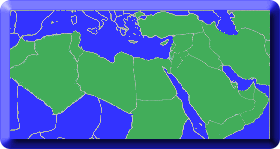
Topics in Middle Eastern and North African Economies
Document Type
Article
Publication Date
9-1-2017
Journal Title
Topics in Middle Eastern and North African Economies
Volume
19
Issue
2
Publisher
Middle East Economic Association and Loyola University Chicago
Abstract
This study examines how Muslims understand democracy and its essential components. We hypothesize that, although Muslims tend to value democracy as high as non-Muslims, Muslims have a unique understanding of procedural, as well as substantive, components of democracy, that stems from both their historical, and current, socioeconomic experiences. Employing the latest data from World Values Survey, our descriptive statistics suggest that while Muslims highly value democracy, and believe they don’t have enough of it, their notion of democracy is distinct from that of non-Muslims. Muslims tend to associate democracy with its perceived outcomes, and do not have a substantial reservation against the interference of the army or religious authorities in the governing process. On the other hand, they view procedural aspects of democracy, such as elections, civil rights and gender equality, as less essential than their non-Muslim counterparts. We use an ordered logit regression model to understand the determinants of preferences for democracy and its components, controlling for both individual and macro level variables. Our results show that the determinants of Muslims’ attitudes towards democracy and its components, are very similar to those of non-Muslims facing similar socioeconomic circumstances or coming from the same cultural and historical backgrounds.
ISSN
2334-282X
Recommended Citation
AlAzzaw, Shireen and Gouda, Moamen, "How Muslims understand democracy: an empirical investigation". Topics in Middle Eastern and North African Economies, electronic journal, 19, 2, Middle East Economic Association and Loyola University Chicago, 2017, http://www.luc.edu/orgs/meea/
Creative Commons License

This work is licensed under a Creative Commons Attribution-Noncommercial-No Derivative Works 3.0 License.
Copyright Statement
© 2017 The Authors



Comments
Presentation of the articles in the Topics in Middle Eastern and North African Economies was made possible by a limited license granted to Loyola University Chicago and Middle East Economics Association from the authors who have retained all copyrights in the articles.